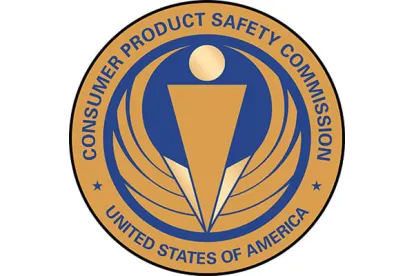Kawasaki Heavy Industries, Ltd., of Japan; Kawasaki Motors Corp., U.S.A., of Foothill Ranch, California; and Kawasaki Motors Manufacturing Corp., U.S.A., of Lincoln, Nebraska, agreed to pay a $5.2 million civil penalty over allegations that Kawasaki failed to report floorboards cracking during normal operation of various Teryx4 recreational off-highway vehicles (ROVs) during two separate periods, which U.S. Consumer Product Safety Commission (CPSC) alleged amounted to defects that could create substantial product hazards.
-
April 2012–July 2014: Kawasaki allegedly received over 400 reports of certain models’ floorboards cracking or breaking during normal operation due to debris impacts/penetration. Three incidents resulted in injuries to consumers, including one serious injury.
-
July 2013–August 2015: Kawasaki allegedly received over 150 reports of certain models’ floorboards cracking or breaking during normal operation, with three of these incidents resulting in consumer injuries, including two serious injuries.
Federal law requires that manufacturers, distributors, and retailers must report potential product safety hazards to the CPSC within 24 hours of discovering evidence of a problem. Despite having received numerous reports of incidents caused by problems with the floorboards of thousands recreational off-highway vehicles (ROVs), Kawasaki allegedly detailed only one incident and an unspecified number of injuries, which the Commission believed amounted to a material misrepresentation of the extent of the problem. The CPSC asserted that the company impeded the CPSC’s investigation, and hampered the agency’s ability to accurately communicate the prevalence of the hazard to the public, creating an unreasonable safety risk.
The civil penalty relates to a recall initially announced in 2014 and subsequently expanded in 2015.
In addition to paying a civil penalty, the company also agreed to maintain a program to ensure compliance with CPSC-administered laws, and also to maintain a related system of internal controls and procedures to assure that it adheres to reporting obligations.
Making determinations about substantial product hazards for purposes of reporting to CPSC necessarily involves subjective judgments. It can be difficult to sort through complex facts and information. The CPSC, however, continues to urge companies to report promptly and fully, and this civil penalty settlement follows several multimillion dollar agreements in recent years.
The settlement was provisionally approved by the CPSC by a 4-to-1 vote, with the three Democrats and one Republican voting to approve the settlement, and Acting Chairman Ann Marie Buerkle voting to reject the provisional settlement. While it is possible that ultimately a change in the makeup of the Commission will result in the agency taking a new look at its approach to civil penalties, it remains essential for manufacturers to maintain accurate records of product defects, analyze them carefully, and to do their best to assure that agency communications are accurate.





 />i
/>i

